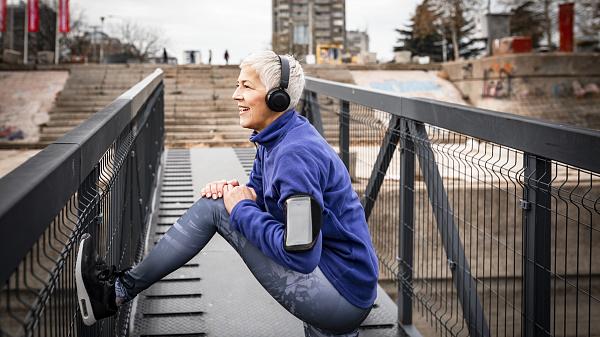Negative Health Effects of DST
Daylight Saving Time (DST) can mess with our body clock and can trigger underlying health issues.

Tired drivers can cause an increase in accidents in the days after a DST switch.
©iStockphoto.com/Antonio_Diaz
Changing the clocks does not create extra daylight but instead shifts the time of sunrise and sunsets. This time change can cause disruptions to our body clock, otherwise known as the circadian rhythm.
When your clock doesn't reflect solar time
Tired from Daylight Saving Time?
Setting your clock forward an hour for DST in spring usually means losing an hour of sleep. This can make you tired. A 2019 survey conducted by the American Academy of Sleep Medicine (AASM), an organization representing sleep scientists and clinicians, found that more than half of Americans typically feel tired after DST begins in the spring.
Recently, the AASM called for abolishing DST. In a statement in the Journal of Clinical Sleep Medicine, they write that “seasonal time changes should be abolished in favor of a fixed, national, year-round standard time.”
Side Effects of Time Change
The tiredness from losing an hour can be disruptive enough in itself, but for some people, springing forward may have much more serious consequences.
- A Swedish study found that the risk of having a heart attack increases in the first three weekdays after switching to DST in the spring.
- Tiredness induced by the clock change is thought to be the main cause for the increase in traffic accidents on the Monday following the start of DST.
- On Mondays after the start of DST there were more workplace injuries, and the injuries were of greater severity compared to other Mondays.
- The start of DST has also been linked to miscarriages for in vitro fertilization patients.
DST Can Trigger Depression
Losing an hour of afternoon daylight after setting the clocks back to standard time can trigger mental illness, including bipolar disorder, and seasonal affective disorder (SAD), also known as winter depression.
- A Danish study found an 11% increase in depression cases after the time change. The cases dissipated gradually after 10 weeks.
- An Australian study found that male suicide rates increased the days after the spring and fall DST shift.

Exercise and sunlight counteract the negative health effects of DST.
©iStockphoto.com/RealPeopleGroup
Negative Impact of DST Fades
Even though disrupting the circadian rhythm can have some serious effects, most studies find that they pass during the days following a DST change.
Facebook found that, following a DST switch, more people were saying they were “tired” than on a normal Monday. However, many Facebook users also reported that they were feeling “happy” and “wonderful”—perhaps an effect of the longer evenings.
More Sleep = Better Health
Just like losing one hour of sleep in spring can have a negative effect, gaining one hour of sleep can do the opposite:
- On the Monday after the DST transition in the fall, heart attack rates decrease.
- At the same time, the number of car accidents in Canada decreased slightly.
Tips to Make the Transition Easier
Being tired can decrease productivity, concentration, and general well-being. There are some simple ways of making it easier to handle the clock change:
- Adjust your body clock and wake up a little earlier than usual in the week before springing forward. This makes it easier to get out of bed on Monday morning.
- Eat a healthy breakfast first thing in the morning. Food tells your body it is the start of the day.
- Go for a walk in the light. Sunlight and exercise adjusts the body clock.
- Help children adjust by putting them to bed a little bit earlier the week before the time change.